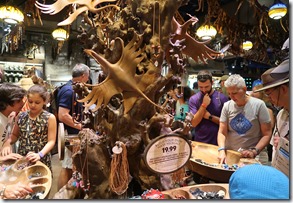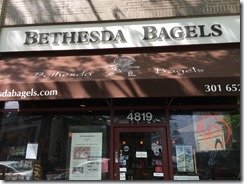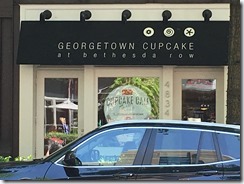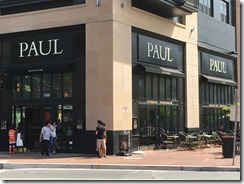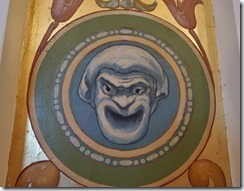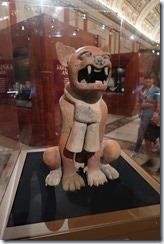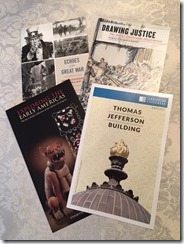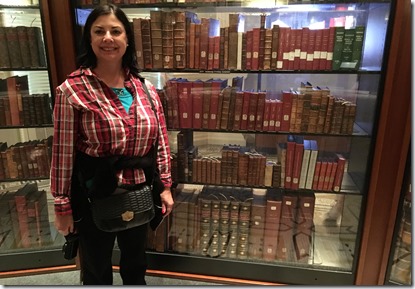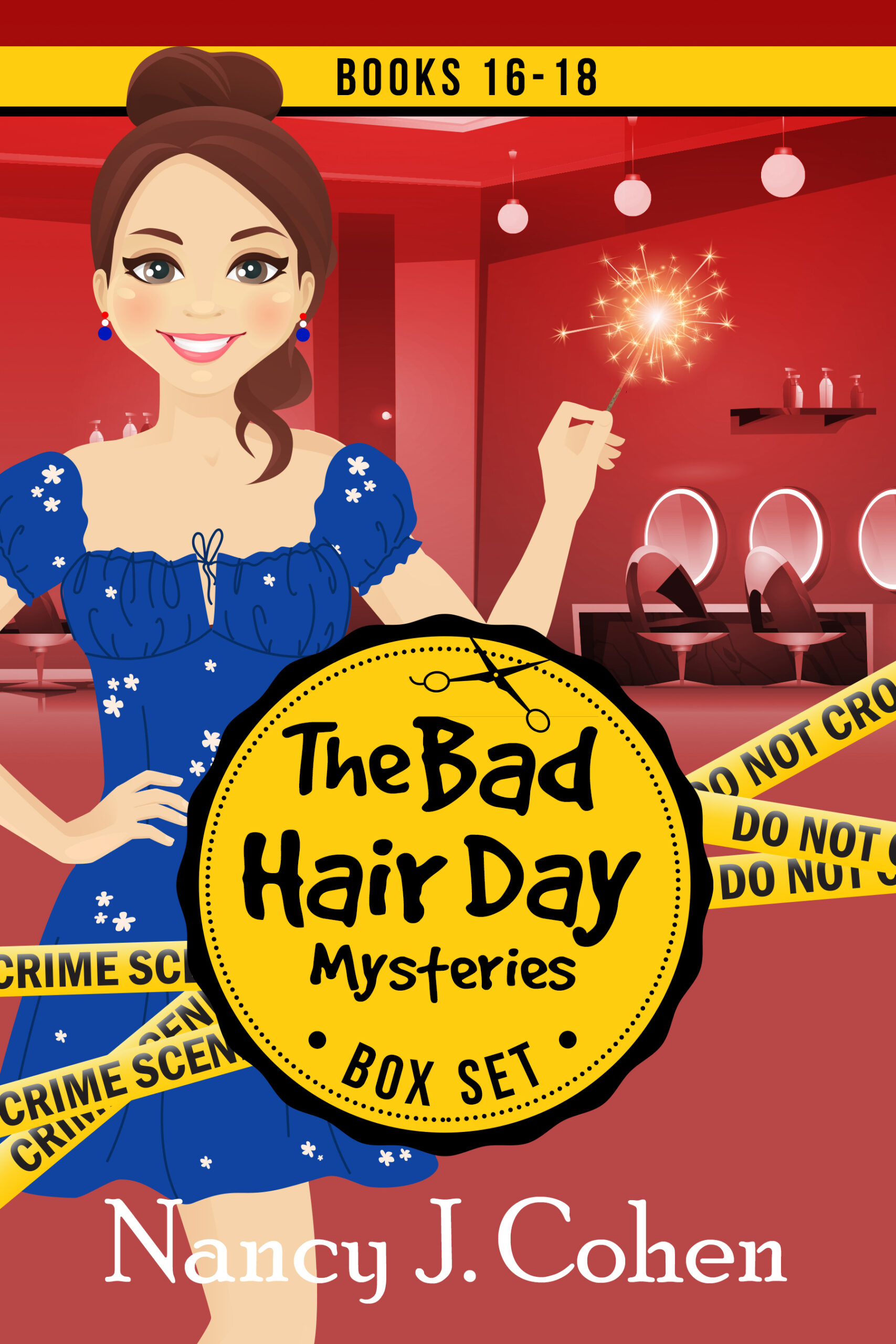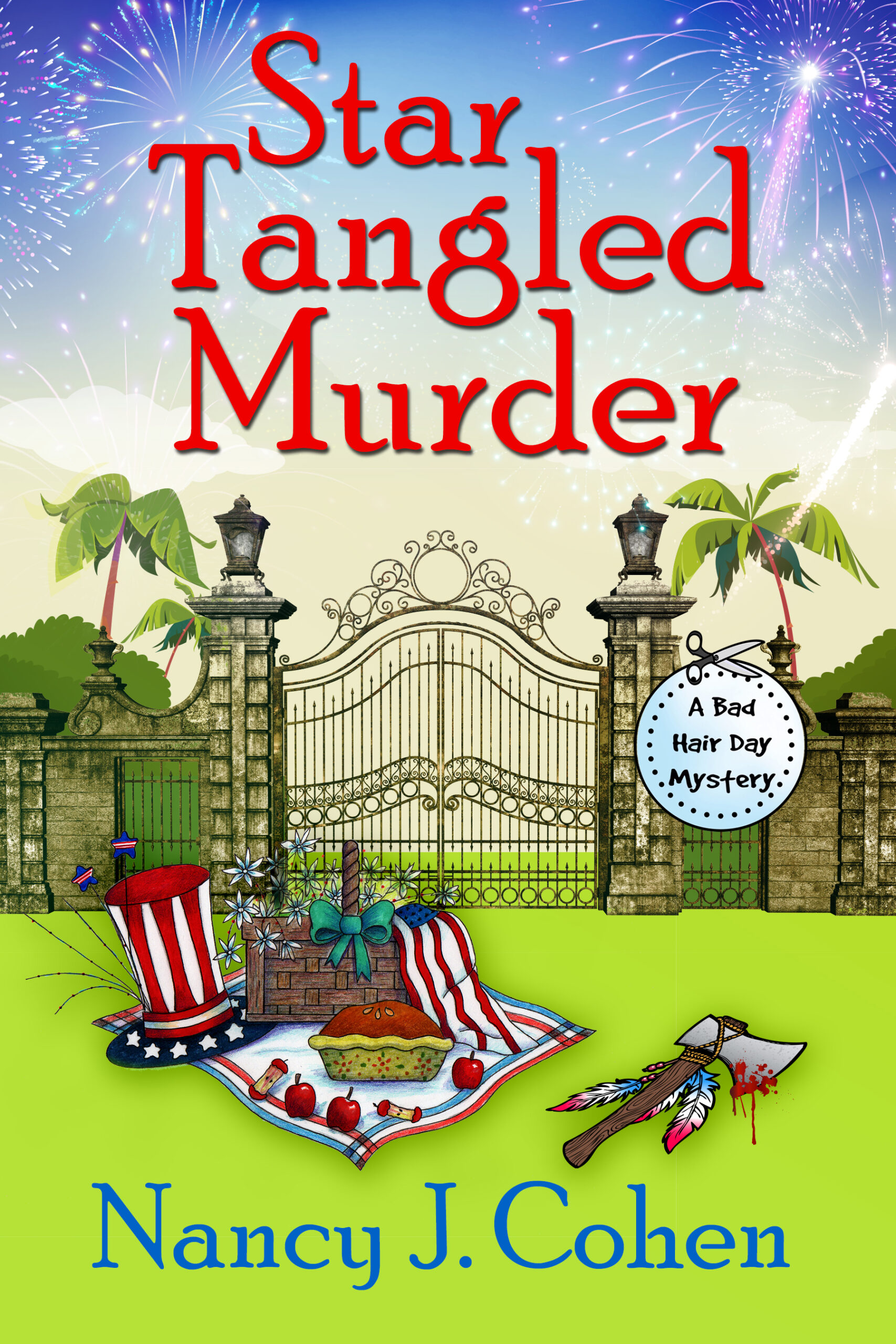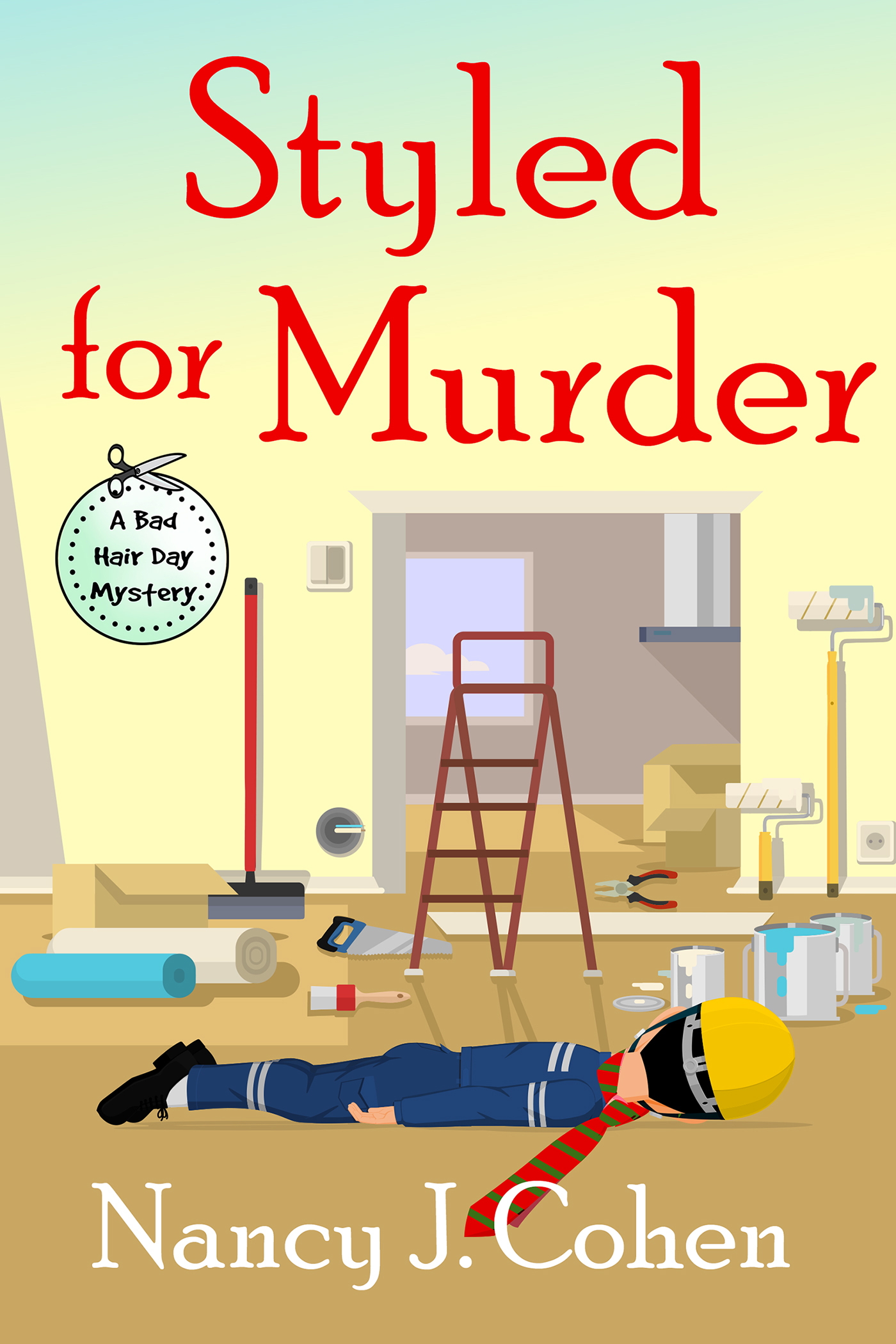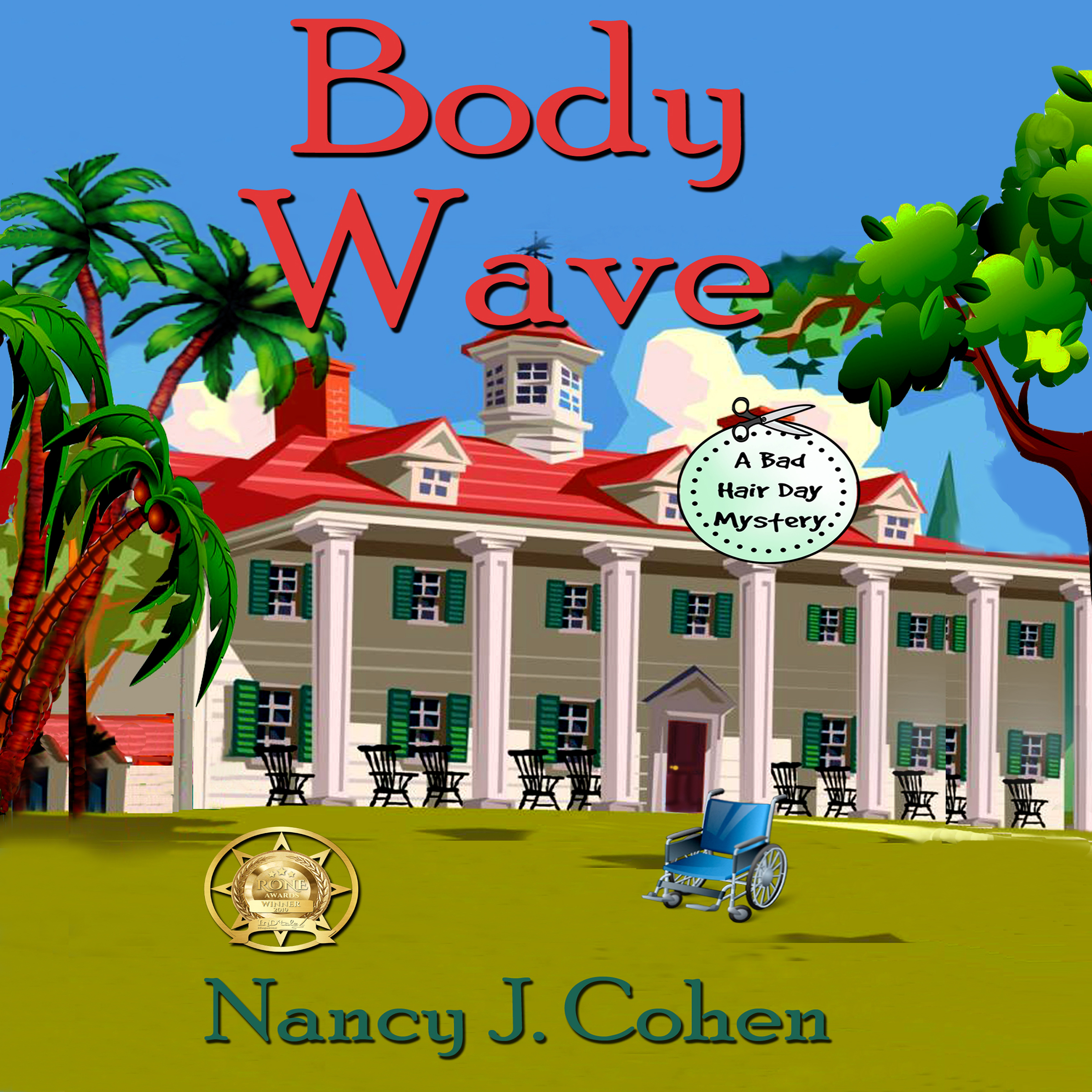MYSTERY MOVIES and TV SHOWS
In addition to the classics like Sherlock Holmes and Agatha Christie, here are some of my favorite films in the mystery genre or movies involving writers. A happy ending is a must for my taste. This list does not include the Hallmark Channel mystery movies of which I’m also a fan.

FILMS
AMERICAN DREAMER with JoBeth Williams and Tom Conti.
This classic tale of intrigue is one of my favorites. A romance novelist wins a contest and a trip to Paris. En route to the awards luncheon, she’s in an accident and suffers a head injury. She wakes up believing herself to be the heroine in her favorite books. A spy caper follows that’s all too real, as she teams up with the author’s handsome son who thinks she’s a nutcase. That is, until someone tries to kill them. http://amzn.to/2qZVEhl
DROWNING MONA with Danny DeVito and Bette Midler.
This funny whodunit in a small town has a cast of wacky characters. Classic example of a cozy. http://amzn.to/2rkArzR
GOSFORD PARK with Helen Mirren and Jeremy Northam.
This is an English drawing room mystery that takes place at a country estate. Aristocrats and servants alike have secrets that slowly unravel during a hunting party weekend. Albeit a bit slow-paced, this film requires repeat viewings to catch the nuances. http://amzn.to/2rklnC8
HER ALIBI with Tom Selleck and Paulina Portzkova.
This hilarious escapade finds mystery novelist Phillip Blackwood falling for a suspected murderess while he searches for inspiration to unlock his writer’s block. Did the mysterious and beautiful foreigner have a hand in the victim’s death? If so, was he foolish to vouch for her alibi and bring her home? And are the accidents that occur after her arrival truly accidents, or is Philip next in line for his guest’s lethal hijinks? http://amzn.to/2qjtafC
MANHATTAN MURDER MYSTERY with Woody Allen and Diane Keaton.
A Manhattan housewife thinks her next door neighbor is a murderer. She enlists her friends to search for clues. Probably my favorite Woody Allen film out of all of them. http://amzn.to/2qZEEIb
MURDER 101 with Pierce Brosnan.
English professor Charles Lattimore assigns his class to plan the perfect murder as a literary exercise. When he’s framed for a woman’s death, he has to find the killer before the detective on the case finds him. Will his students help him solve a real murder, or is one of them guilty? http://amzn.to/2qje0qK
MURDER BY THE BOOK with Robert Hays.
A mystery novelist thinks he’s hallucinating when his hero appears in front of him and talks back. He’s been thinking of changing to a new series and scrapping the sleuth, but now he needs the fellow’s help to solve a real murder. http://amzn.to/2qZrQzF
MY COUSIN VINNY with Joe Pesci, Ralph Macchio, Marisa Tomei, and Fred Gwynne
In this funny courtroom drama, a New York lawyer on his first case defends two fellows in Alabama who are mistakenly accused of murder. Watch for the clues in this hilarious mystery. http://amzn.to/2qnMisB
THE BOY NEXT DOOR with Dina Meyer and Cory Monteith.
A romance writer goes on a retreat to a small town to seek inspiration for her next story. When her next door neighbor is found dead, the chief of police suspects her. Even when her place is ransacked and someone tries to run her off the road, he discounts her theories and refuses to look into the incidents. It’s up to our heroine to prove her innocence and uncover the killer before his next attack turns fatal. http://amzn.to/2qZQXEi
TV SHOWS
THE BROKENWOOD MYSTERIES with Neill Rea and Fern Sutherland.
I’ve bought the DVDs. Otherwise, you can find this show on the Acorn TV Channel. http://thebrokenwoodmysteries.com/
Detective Senior Sergeant Mike Shepherd and Detective Constable Kristin Sims solve mysteries involving a limited number of suspects, most of whom know each other, in a distinct setting and with a definite sense of humor. Emphasis is on the relationships between characters and personal motives rather than forensics. Each episode is a perfect example of a cozy mystery despite the lack of an amateur sleuth. http://amzn.to/2qjcPYl

MISS FISHER’S MURDER MYSTERIES with Essie Davis and Nathan Page.
http://www.abc.net.au/tv/programs/miss-fishers-murder-mysteries/
The Honourable Miss Phryne Fisher solves crimes in 1929 Melbourne, Australia. Essie Davis plays the lead while Nathan Page plays her romantic interest, Detective Inspector Jack Robinson. Warning: Miss Fisher’s spectacular outfits threaten to steal the show. http://amzn.to/2qjwVle

MIDSOMER MURDERS with John Nettles and Jane Wymark.
A police detective and his deputy solve murders in small town England. Some people love this show. I couldn’t get into it but it might appeal to you. http://amzn.to/2qSu0Cu
ROSEMARY AND THYME with Felicity Kendal and Pam Ferris.
Two ladies in England solve mysteries together. One is a plant pathologist. The other woman is separated from her husband. I haven’t watched too many of these but they caught my interest. http://amzn.to/2qj87ty
Disclosure: I am a member of the Amazon Affiliate program. These are affiliate links.
So here you go. If you have some free time this weekend, look up these films and have a good time. Keep watch for Murder on the Orient Express, an upcoming theatrical release and remake of the classic Agatha Christie tale, with Johnny Depp, Judi Dench, and Penelope Cruz in an all-star cast.
Sign up for my Newsletter for my latest book news, giveaways, sales, and events. Free book sampler for new subscribers.
Save
Save
Save
Save
Save
Save
Save
Save












